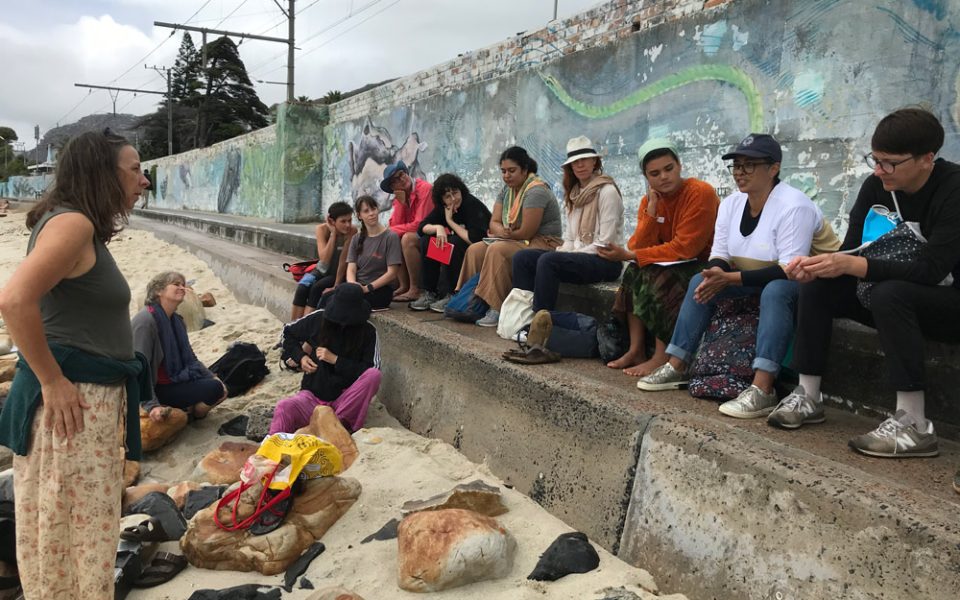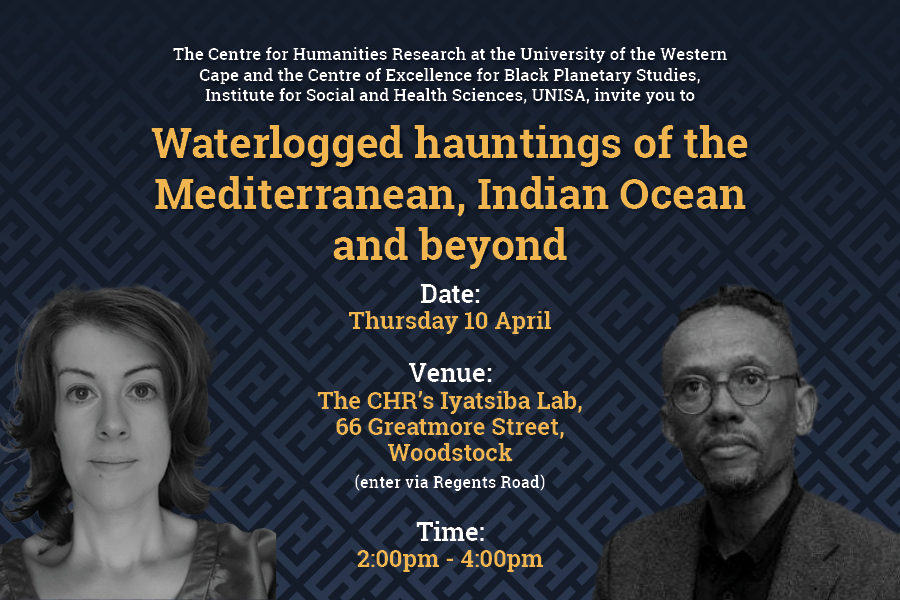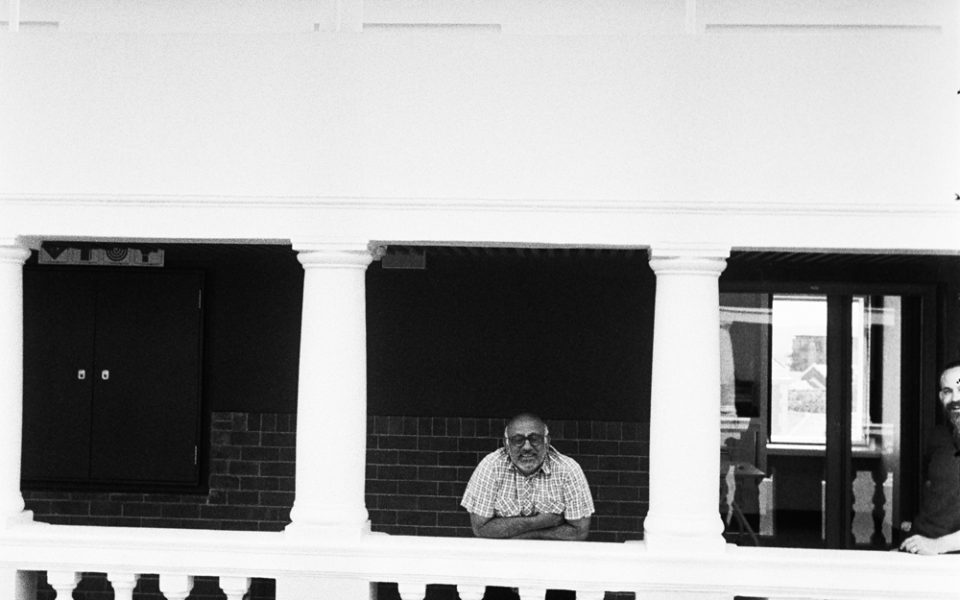African Critical Inquiry Program Announces 2022 Ivan Karp Doctoral Research Awards

The CHR warmly congratulates recipients of the 2022 Ivan Karp Doctoral Research Awards, namely Vanessa Chen, Min’enhle Ncube and Suzana Sousa.
The African Critical Inquiry Programme has named Vanessa Chen, Min’enhle Ncube and Suzana Sousa as recipients of the 2022 Ivan Karp Doctoral Research Awards. Chen, a South African student in the Department of Historical Studies, and Ncube, a Zimbabwean student in Social Anthropology, are both pursuing PhDs at University of Cape Town. Sousa is an Angolan student in History at the University of the Western Cape and a doctoral fellow of the CHR. Support from ACIP’s Ivan Karp Awards will allow each of them to do significant research for their dissertations. Chen will work in Dutch archives for her dissertation, Collecting and Convening the Visual and Material Cultural History of Chinese Convicts, Exiles and “Free Blacks” at the Cape (circa 1654-1838). Ncube will conduct fieldwork in Zambia for her project Mapping the Ethics of Care Associated with Artificial Intelligence Technologies in Healthcare Infrastructures in Zambia. Sousa’s award will support her research at Angolan museums for her project “Angola Avante?” Making and Contesting Political Narratives of the Nation through Art and Visual Culture.
Founded in 2012, the African Critical Inquiry Programme (ACIP) is a partnership between the Centre for Humanities Research at University of the Western Cape in Cape Town and the Laney Graduate School of Emory University in Atlanta. Supported by donations to the Ivan Karp and Corinne Kratz Fund, the ACIP fosters thinking and working across public cultural institutions, across disciplines and fields, and across generations. It seeks to advance inquiry and debate about the roles and practice of public culture, public cultural institutions, and public scholarship in shaping identities and society in Africa through an annual ACIP Workshop and through the Ivan Karp Doctoral Research Awards, which support African doctoral students in the humanities and humanistic social sciences enrolled at South African universities.

About Vanessa Chen’s project:
Despite the documentary record of the early history of Chinese convicts, exiles, and ‘free blacks’ at the Cape (1654 – 1838) being fragmentary and scattered in multiple places, it is and should be seen as significant in the making of South Africa’s social history. Researchers have undertaken the task of bringing the stories of this subaltern group to the forefront, however, they have not reckoned with the making of this collection of documentary sources. Collecting and Convening the Visual and Material Cultural History of Chinese Convicts, Exiles, and “Free Blacks” at the Cape (circa 1654-1838) works to do so, and to re-curate these sources as an archive in and of itself. Chen’s dissertation examines the history of the extant documentary archival slivers that speak of Chinese presence at the colony alongside non-documentary materials, tracing and accounting for their presence and absence. She has already worked with archival sources in South Africa, and next will do on-site research at the National Archives of the Netherlands. Her final archival work will be in Indonesia. In the Netherlands, she will locate and collate records for document analyses, consult with archivists regarding the records’ biographies – their movement and reshaping to and from different repositories across time – copyright regulations and accessibility and negotiate permission to digitise and include the records in an eventual digital curation. Chen’s dissertation will enable a more comprehensive understanding of the nature and extent of the Cape Chinese archive, address deficiencies of colonial archiving, and underscore both the importance of representation and what can be made despite of the lack thereof.

About Min’enhle Ncube’s project:
Mapping the Ethics of Care will be the first in-depth ethnographic study on the ethics of care associated with artificial intelligence adopted in healthcare infrastructures in Zambia. Artificial intelligence software is increasingly being adopted to support healthcare infrastructure, raising issues underscored by postcolonial quandaries, neoliberalism from Copperbelt mining, and other developmental paradigms. Through eighteen months of research in Zambia, Ncube will investigate the creation of AI tools, the implications of adopting these into the healthcare infrastructures, and how this contributes towards the ethics of care in the area. The project will examine whether machine learning, its inputs of big data, and software development support or challenge the diversity and inequalities in southern Africa. Ncube’s project is a part of a larger strategic programme, Future Hospitals: 4IR and Ethics of Care in Africa, at the Institute for Humanities in Africa that reflects critically on data and AI’s implications for care infrastructures on the continent. Ncube will use epistemic disobedience (Mignolo 2011) as a framework to interrogate technology infrastructures, their epistemology, the fundamentals of ‘intelligence’ and its relevance in a post/neo-colonial landscape of care. With a dearth of literature on ethics associated with AI in the Global South, Ncube’s research addresses this gap in the context of broader anthropological inquiry in Zambia, which includes works from colonial-era and postcolonial Zambia (or Northern Rhodesia). It builds on scholarship regarding the anthropology of ethics and technology while fostering connections with past anthropological work to further the development of anthropology and social science in the region. The research also advances anthropology’s relevance in innovation praxis on the African continent.

About Suzana Sousa’s project:
“Angola Avante?” Making and Contesting Political Narratives of the Nation through Art and Visual Culture is concerned with the nation-building process in Angola after its independence in 1975, a process that occurred through arts and culture. It examines the history of cultural nationalism in the country and the political narrative that has engaged this history to legitimise the nation. This also involves exchanges between politics and visual culture in the context of civil war and the construction of national identity. The process of making the nation was enacted through cultural policy, national arts organisations, and museums that maintained an affinity with colonial ethnography. Sousa engages with the development of visual arts and the making of museums in the aftermath of the civil war. She argues that the policies and practices promoted by the Popular Movement for the Liberation of Angola (MPLA) have continued to be entrenched in colonial categories and distinctions. Her research seeks to understand these complexities and contradictions through fieldwork in two museums in Angola, the Dundo Museum and the National Anthropology Museum. The latter was founded a year after independence in the country’s capital and the former is a colonial enterprise from 1936 located in the east of the country, in an area administered by the mining company Diamang. The museums’ locations, Luanda and Dundo, are also am entry point to the diverse constructions of identity within the nation.




